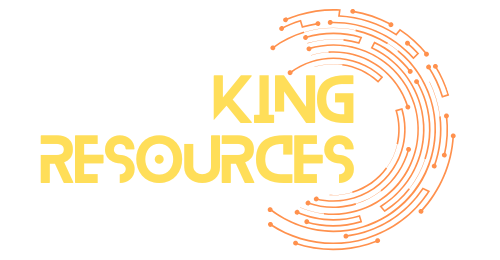In the great debate of renting versus buying, it often feels like choosing between a cozy blanket and a warm cup of cocoa—both have their perks, but which one warms the heart more? Many find themselves standing at the crossroads, wondering if they should throw caution to the wind and dive into homeownership or keep it casual with a rental. It’s like deciding whether to commit to a long-term relationship or enjoy the freedom of dating.
Renting offers flexibility and fewer responsibilities, while buying promises stability and the thrill of home improvement projects that could turn into DIY disasters. But which path leads to a happier life? Join the exploration of this age-old question, where practicality meets passion, and discover what truly makes a house a home in the long run.
Table of Contents
ToggleOverview of Renting vs Buying Long-Term
Renting and buying a home both offer unique advantages and challenges. Those who rent benefit from greater flexibility and reduced maintenance responsibilities. In many cases, renting allows easy relocation for job opportunities or personal reasons without the burden of selling a property.
Buying a home, however, provides stability and long-term investment potential. Homeowners often gain equity over time, which can contribute to personal wealth. They also enjoy the freedom to customize their living space through renovations.
Financial factors play a significant role in this decision. Renting typically requires upfront costs, often including a security deposit and the first month’s rent. In contrast, home buying usually entails a down payment and closing costs. Monthly mortgage payments can sometimes be comparable to rent, especially as property values increase.
Local market conditions heavily influence the choice between renting and buying. In areas with high property values, renting may prove more affordable, while in some markets, ownership can offer better long-term financial benefits.
Lifestyle preferences shape the decision further. Those who prefer the mobility of renting might prioritize job flexibility or travel. Conversely, individuals seeking a stable community and family roots might find more satisfaction in homeownership.
Ultimately, renters and buyers must evaluate their financial health, personal preferences, and future plans. There’s no one-size-fits-all answer. Each individual or family must assess which option aligns best with their lifestyles and goals.
Pros of Renting Long-Term
Renting long-term offers various advantages, appealing to those prioritizing flexibility and convenience.
Flexibility and Mobility
Flexibility stands out as a key benefit of long-term renting. Renters can easily relocate for job opportunities or lifestyle changes. Many landlords offer short lease terms or month-to-month options, enhancing mobility for those whose careers or personal lives require frequent moves. Additionally, renters can experience different neighborhoods without the long-term commitment associated with home purchases. Adjusting living situations becomes straightforward, allowing individuals to explore various environments before deciding on a permanent residence.
Lower Upfront Costs
Lower upfront costs also make renting an attractive option. Initial expenses typically include a security deposit, which is generally one month’s rent, rather than a down payment that often reaches 20% of the property’s price. Many rental agreements do not require closing costs, further reducing financial burdens. In certain cases, renters avoid the expenses of maintenance and repairs, as landlords handle those responsibilities. Consequently, renters maintain more financial flexibility, allowing for savings or investments in other areas of their lives.
Cons of Renting Long-Term
Renting long-term has its drawbacks that need careful consideration.
Lack of Equity Building
Renters don’t build equity in their homes. Monthly rent payments contribute to a landlord’s income but don’t translate into ownership or future financial benefits. Over time, homeowners accumulate equity, as property values typically appreciate. This appreciation can significantly boost wealth, while renters remain at a financial standstill. Long-term renting may lead to missed opportunities for increased net worth that comes with homeownership. It prevents individuals from capitalizing on market gains or refinancing opportunities. Ultimately, without equity, renters miss out on the potential for major financial growth.
Potential Rent Increases
Renters often face potential rent increases. Lease agreements usually include clauses allowing landlords to raise rent at renewal time. Market fluctuations can directly impact rental rates, making budgeting difficult. Cities with low vacancy rates often see sharp increases in rental costs, potentially straining tenants’ finances. Some renters find themselves forced to relocate when prices rise beyond their budget. Staying in one place becomes more challenging, as financial stability may fluctuate with rent hikes. Ultimately, unpredictable rent increases can hinder long-term security and financial planning for renters.
Pros of Buying Long-Term
Purchasing a home offers several distinct advantages, with two key benefits being the opportunity to build home equity and the provision of stability and security.
Building Home Equity
Homeownership allows individuals to build equity over time. Each mortgage payment contributes to owning more of the property, creating a valuable asset. Unlike renting, where payments disappear into landlord profits, homeowners see their investments grow as property values increase. In 2021, U.S. homeowners gained an average of $56,700 in equity, reflecting a robust housing market. Equity provides financial leverage for future endeavors, such as purchasing another home or funding education. As homeowners renovate or improve their properties, added value enhances overall equity, making long-term ownership financially advantageous.
Stability and Security
Owning a home provides a sense of stability and security. Individuals enjoy the security of not worrying about lease expiration or unexpected rent increases. A fixed mortgage payment ensures predictable housing costs, which simplifies budgeting. Community ties often strengthen when families stay in one location for years. Moreover, homeowners control their living spaces, allowing for personalization without seeking landlord approval. This freedom fosters a sense of ownership and satisfaction, contributing to long-term happiness and well-being. In essence, buying a home offers not just financial benefits but also emotional and social stability.
Cons of Buying Long-Term
While homeownership comes with benefits, several downsides exist. Understanding these factors helps in making informed decisions.
High Initial Investment
A significant upfront cost characterizes buying a home. Buyers typically face expenses like down payments and closing costs, which often total 3% to 20% of the property’s price. In 2021, the median home price in the U.S. reached approximately $347,500, making the expected down payment anywhere from $10,425 to $69,500 based on this range. This initial investment can be daunting for many individuals or families. Additionally, buyers may need to factor in costs for inspections and appraisals, further increasing the financial burden. Opting to buy might strain finances initially, especially for those with limited savings or facing existing debts.
Maintenance Responsibilities
Homeownership brings along unwavering maintenance responsibilities. Homeowners must handle repairs, regular upkeep, and improvements personally. Neglecting these tasks can lead to costly future repairs, affecting the property’s value and livability. According to the National Association of Realtors, homeowners allocate about 1% to 3% of a home’s value annually for maintenance. This means a $300,000 home could require $3,000 to $9,000 per year for upkeep. Unlike renting, where landlords typically manage such tasks, homeowners must step in, often feeling overwhelmed by home repair demands. Balancing these responsibilities with other lifestyle commitments can prove challenging over time.
Choosing between renting and buying a home is a deeply personal decision influenced by various factors. For those valuing flexibility and mobility renting often proves to be the better option. It allows individuals to adapt to changing circumstances without the burden of long-term commitments.
On the other hand buying a home can provide stability and the opportunity to build equity over time. Homeownership may lead to long-term financial benefits and a sense of belonging in a community. Ultimately it’s essential for individuals to weigh their financial situation lifestyle preferences and future aspirations to make the choice that best suits their needs.









